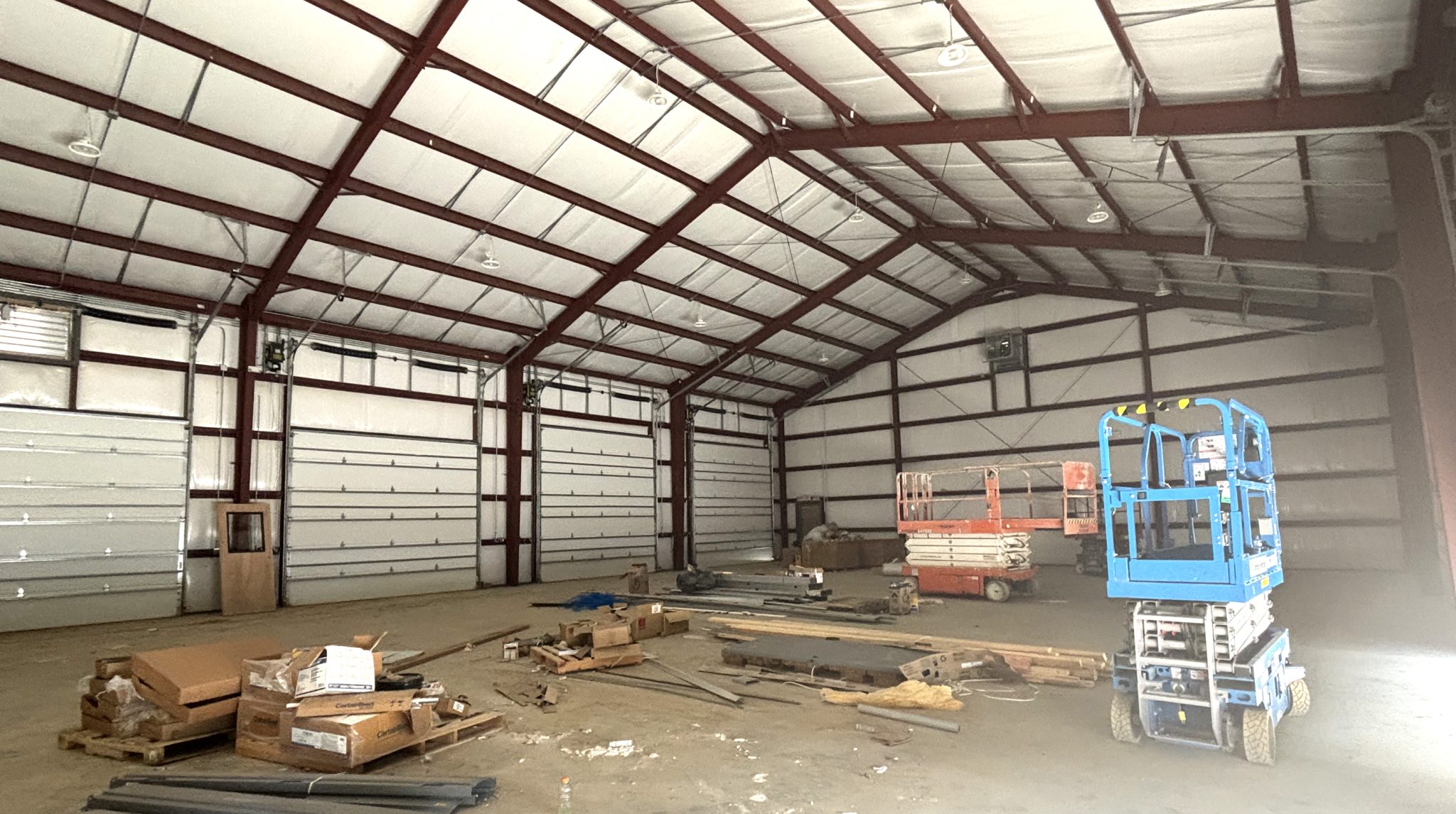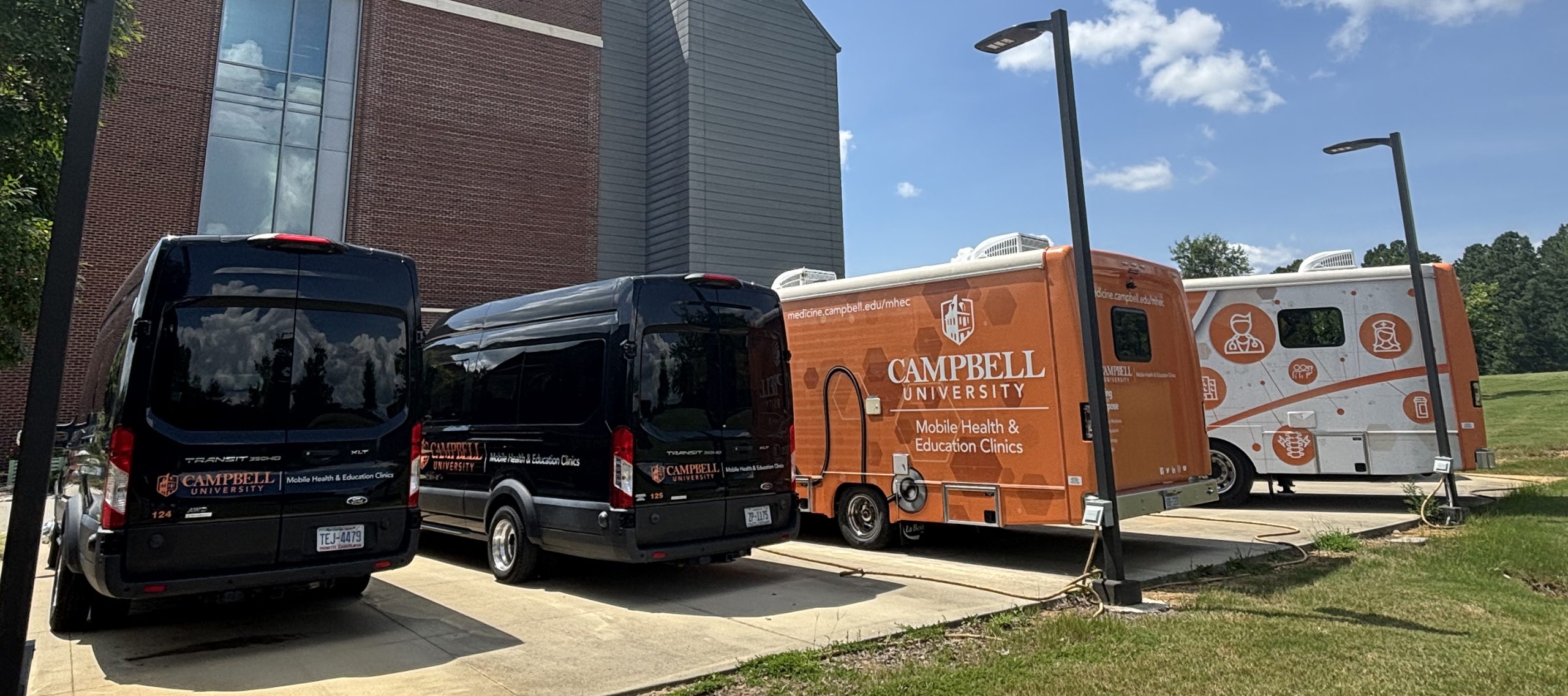
Campbell’s four Mobile Health and Education Clinics, veritable “hospitals on wheels” that have allowed the University’s medical school and health science programs to provide care throughout the state and region over the last four years, will finally have a home, thanks to a grant made possible by North Carolina’s General Assembly.
Construction will be completed this month on a 6,000-square-foot station house that will provide cover and added security for Campbell’s four mobile clinics. In addition to the large garage, the station will feature three offices for staff, a large storage area for supplies needed for the units and a meeting room. According to Facilities Management Director Robbie Adams, the building will be much more than a “garage” once complete.
“These mobile units are high-tech vehicles with a lot of equipment, and now we’ll be able to keep them out of the elements and locked away,” Adams said in a press release. “In addition to having staff on site, this station will be able to host events and meetings and become part of the student experience. And in the event it’s needed, it can become a command center for the county.”

Nearly all of the roughly $1.4 million project was covered by a state grant, with Campbell responsible for around $75,000 of the project. Construction began earlier this year and is expected to wrap up around the start of the fall semester — according to Adams and Grounds/ Auto Shop Manager Bryan Denny, electric and HVAC work will make up most of the final work over the next month.
Campbell’s mobile unit fleet is made up of two 40-foot-long vehicles and two smaller units (26 feet). The larger vehicles are equipped with examination rooms and just about anything a physician would need for primary care procedures and practice. The vehicles feature lab space, refrigeration for immunization materials and educational material on health care issues like diabetes, obesity and smoking cessation.
The vehicles were made possible by a $6 million grant Campbell received from the North Carolina General Assembly in 2020. Among the first uses for the units were COVID-19 outreach efforts that began in 2021 and more recently, the units were used to provide care in western North Carolina after Hurricane Helene.
The station house is the highlight of several recent capital improvement projects at the Leon Levine Hall of Medical Sciences, home to the Jerry M. Wallace School of Osteopathic Medicine, Campbell’s Physician Assistant program and other health science programs. A freight elevator was fully replaced this year, and significant work was done on the building’s HVAC system and to clean outside brick and slate. Campbell has also partnered with TA Loving to address window integrity and moisture damage on the building’s fourth floor.

Kristen Botts co-founded the program with her husband, Nathan Botts, who is a Veteran himself. Photos provided by Kristen Botts.An organization helping Veterans live a full life after their service in the U.S. Military wants to connect Veterans and d

Patrick NoblesHuntington Bancshares Incorporated announced on Feb. 2 that it has closed its merger with Cadence Bank, a regional bank headquartered in Houston, Texas and Tupelo, Miss. This strategic partnership accelerates Huntington’s growth in

There is extensive dialogue surrounding Fayetteville as a travel destination or city aimed at recruiting new businesses and new residents. As someone who moved here from out of state, I thought it could be fun to share my personal experience as